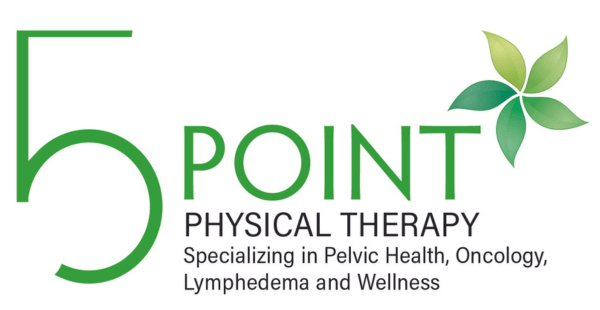I am a huge fan of the show Friday Night Lights. As I approached the second season, an issue arises where one of the characters (Tami Taylor) experiences difficulty getting intimate with her husband, about 6 weeks after she had given birth. Most doctors tell new mothers that they’re ‘allowed’ to have sex after 6 weeks. Tami Taylor’s experience called to mind discussions I’ve had with some of my patients that have expressed similar hesitations around postpartum intimacy.
Here at 5 Point Physical Therapy we treat many patients that are pregnant and those that are postpartum. I empathize with and relate to patients on this topic even though I’ve not yet had a child of my own, and I believe that my experience with treating many related diagnoses has led me to the realization that just as every person is different, every birth experience is different – we’ve heard a wide variety of stories here at 5 Point.
As we consider therapy for a new mother, we can’t just look at whether the mother has had a C-section or vaginal birth; the body is affected in different ways according to whether the baby is breeched or not, whether the mother has a home birth or a hospital birth, with or without a doula – there are even women who choose to experience birth with dolphins in attendance!
Today we have SO many options to create a birthing plan – though occasionally extenuating circumstances cause a deviation from the mother’s ideal path.
Post-birth, there is another plan to follow and deviate from, and the way a woman feels after giving birth will touch every part of her life, including her sexuality. Many women are suffering from sheer exhaustion, and breastfeeding can affect libido levels in a major way as well. It is not uncommon that patients, with or without a traumatic birth, will mention that they did not desire intercourse until 6 months to a year afterwards.
The question arises – is our typical postpartum care sufficient enough for women to prepare them to engage in sexual activity with their partners? How soon is too soon? I personally believe that after carrying a child for 40 +/- weeks and enduring the process of labor/delivery, women should be encouraged to get the rest and recovery their bodies need, for as long as they need to.
I began asking some patients what their thoughts were on why it is sometimes difficult for women to become intimate postpartum. A majority reported that after going through labor and delivery and associating their bodies with that intense process, it is very hard to switch over to thinking about that part of their body as a center of pleasure, which makes a lot of sense. Many mothers also revealed that they found intimacy and closeness in their newborns (whether breastfeeding or not) that they would normally crave from their partner.
Postpartum practices vary widely across the globe. In China, for example, new mothers practice zuo yuezi, which means “sit the month.” New mothers are required to stay indoors, eat only warm food (nothing raw or cold), and avoid bathing! Although staying inside for a month and staying away from soap may seem a bit extreme, the goal is to give mothers the rest they deserve and promote healing.
Requiring rest for our NYC mothers would be nearly impossible – this truly is the city that never sleeps! But we do know that taking at least 2 weeks to rest the body may help mothers bounce back quicker… and in turn have intercourse with their partners sooner! I think it’s important to share with new mothers that it’s OK to say ‘no’, especially in the early days – delegating tasks to family and friends can be a lifesaver. We also encourage listening to one’s body – oftentimes our bodies already know what we need to heal.
Here are some general tips for new mothers on becoming intimate postpartum:
- Lube up! Don’t be afraid to use lubricant with your partner! Hormonal changes can affect skin and lubrication, so try a few to see what works for you! We use slippery stuff, sliquid, and YES here at 5 Point PT.
- If there is any pain associated with intercourse, using a dilator may be helpful in helping to relax and stretch the pelvic floor. Check in with a pelvic floor physical therapist if you’re interested in trying this out.
- Talk openly with your partner about the importance of foreplay and taking the time you need to climax – sex after baby may not be the same initially as it was before, but that doesn’t mean it won’t be great with time!
- Speak to your pelvic floor physical therapists if you have any questions at all – they have tons of resources and can guide you along the way.
[fusion_builder_container hundred_percent=”yes” overflow=”visible”][fusion_builder_row][fusion_builder_column type=”1_1″ background_position=”left top” background_color=”” border_size=”” border_color=”” border_style=”solid” spacing=”yes” background_image=”” background_repeat=”no-repeat” padding=”” margin_top=”0px” margin_bottom=”0px” class=”” id=”” animation_type=”” animation_speed=”0.3″ animation_direction=”left” hide_on_mobile=”no” center_content=”no” min_height=”none”][avatar user=”Erica” size=”thumbnail” align=”left” /]
[/fusion_builder_column][/fusion_builder_row][/fusion_builder_container]

